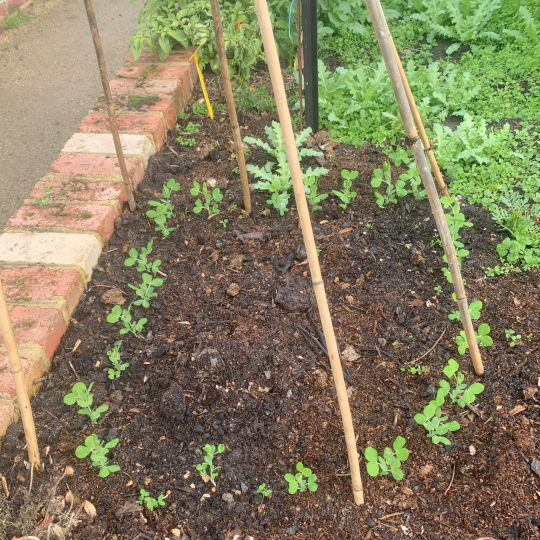As community health declines, social isolation grows, and the environment unravels, food system transformation is a powerful lever for change. Yet, while many go hungry, tons of food go to waste. The system is broken—and change is essential.
There are two main issues with food and our relationship with it that impacts the environment. The amount of energy, water and materials involved in growing and transporting food set against the amount of food we waste.
Here you can learn about the complex problems of our food system; about exciting community solutions in action and the role you can play in being part of the solution.
Each year, 250,000 tonnes of food is thrown out by Victoria households, enough wasted food to fill Melbourne's Eureka Tower and equating to $2,200 worth of food per household (Sustainability Victoria).
Food waste in landfills is a significant contributor to global warming due to methane production. Methane, a potent greenhouse gas, has a global warming potential (GWP) 28-36 times higher than carbon dioxide, trapping more heat in the atmosphere and warming the planet faster (Queensland Government).
Simple - we need to stop sending food to landfill and eat it!
Food waste and food growing is a relative new area of work for MVS. We run a monthly food swap as part of the Waste Not Hub and are developing plans to get more involved in food waste and insecurity.
Over the next year we would like to work in collaboration with Sustain – The Australian Food Network, set up a local food network and build the monthly food swap at Waste Not Hub.
But much of what we need to do is down to actions of many individuals. MVS has written a factsheet on the issues of food in relation to climate emissions with some activities to undertake. Below you will find our top recommendations on the steps you can take in yor own home.
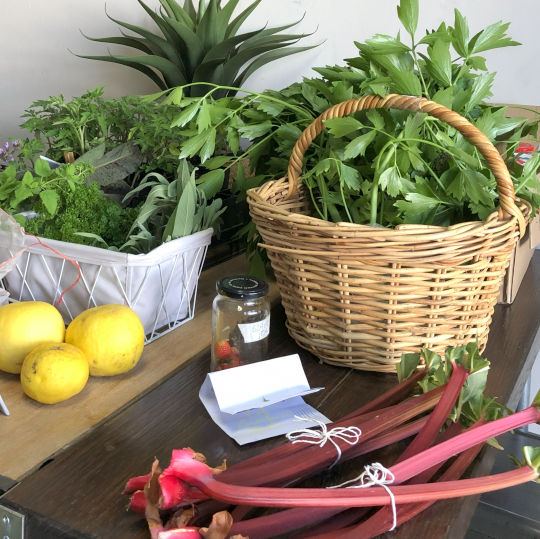
Be organised, know portion sizes, learn how to store food well and only buy what you are going to eat. Simple? Yes. But quite time intensive. Try these apps to help you plan better.
The state government has also developed some resources to help people reduce food waste. This is one of Sustainability Victorias main priorities.
Sustainability Victoria Avoid Waste Tips
Sustainability Victoria Food Storing Tips
Remember: Best-before dates give you an idea of how long foods will last before they lose quality, most products will last beyond their ‘best-before’ date if they are stored properly. Foods marked with a ‘use-by’ date must be consumed before or on that date. There is a difference!
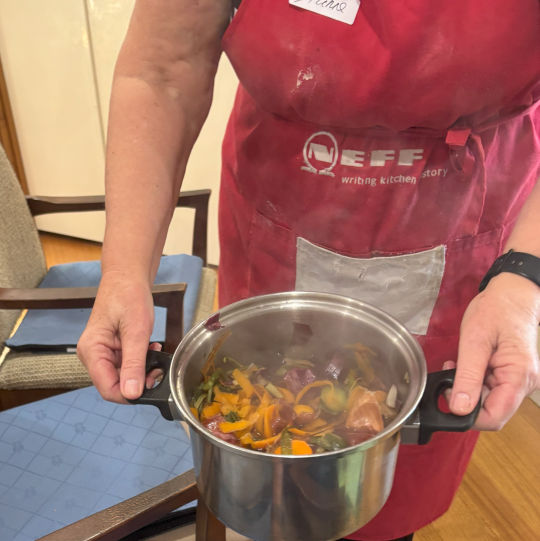
Thousands of kilos of fruit and veggies are rejected by supermarkets every single week. Heading for landfill, several companies now intercept this ‘Waste” and sell it online. So stop buying your perfect veggies from the supermarkets and buy it here instead. It helps our farmers too –
You can do with with canned and packaged goods that are close to their sell by date –
cheaperbymiles (Flemington)
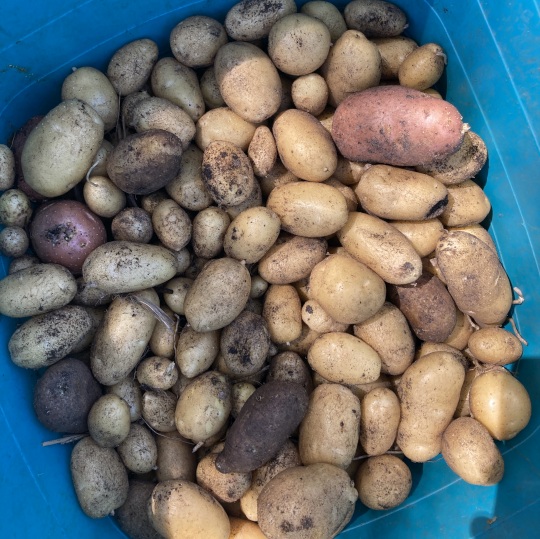
We can eat all your left over food generated at home, buy it or even go scrummaging for it. What ever you’re up for, it all makes a difference.
Made too much for dinner – then eat it for lunch the next day. There are several cook books based on leftover cooking that you can borrow from the library.
You can also buy left over or surplus food very cheaply from bakers, takeaways and even events that is destined for landfill. The simplest way is to use match making apps like Too Good To Go
Throwing food out is illegal in France. Unlegislated here many companies still throw food in dumpsters at the end of the day. So you could try your hand at dumpster diving. Heres some tips for those starting out.
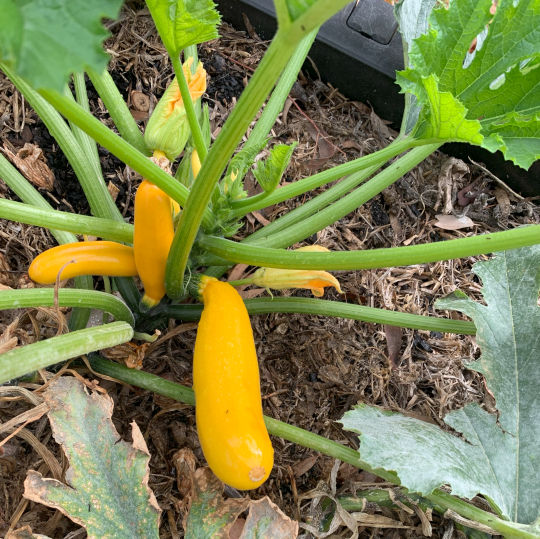
You can put your food scraps in the green bin. For information about this visit the Council website. But don’t just give your food scraps away to FOGO – try composting at home, if you can, and reap the rewards of making organic matter out of food scraps! Composting is good if you have a garden because you always need compost. Worm farming is a bitmore flexible and the worm castings can be used on indoor plants and the garden.
There are many amazing how to videos out there, here’s just two to start you off on your composting journey.
Sustainable Gardening Australia
The Composting Coach is a very indepth book
If you don’t have the ability to compost, you can give it to someone who needs more organic waste for their compost systems through ‘Peels’.
Putting food waste in the red landfill bin should always be last resort. Put it in your Food Organics Garden Organics (FOGO) bin. Dont have one? Speak to a neighbour…
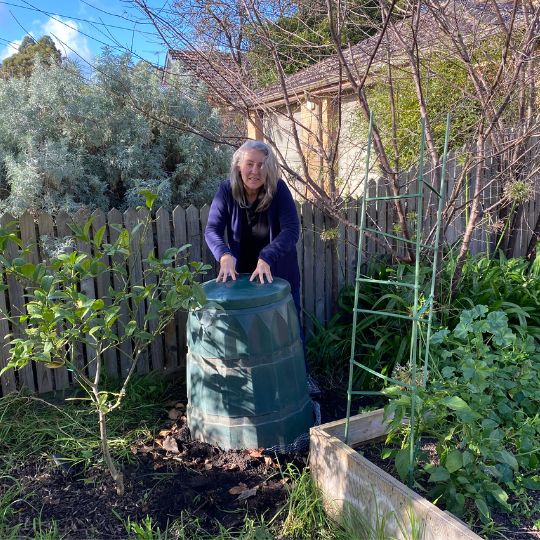
Growing your own food cuts down food miles, emissions, and packaging waste. Focussing on this also reduces the amount of meat you eat, which is very carbon heavy when it comes to emissions. From a few herbs on a window sill, to a backyard farm, each change makes a difference. So have a go at growing your own. Heres some great reseources to start your growing journey.
Sustainable Gardening Australia
Many community gardens run sessions on how to grow food and they also run food swaps, which is a fast growing network. Heres our some contacts for you to learn and swap –
Theres also come brilliant local online groups –
Moonee Valley Garden Group (FB)
Strathmore Backyard Food Growers
Ascot Vale and Surrounds Backyard Produce, Swap and Share
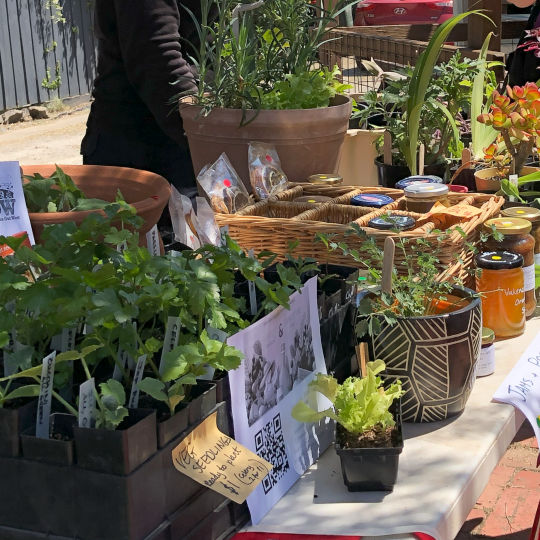
Portion sizes are off the scale in most eateries, with few of them really managing their food waste appropriately. This increases the amount of food waste being sent to landfill. First stop is to elimiate food waste as much as you can. You can opt for a starter or side dish as addition to a meal to feed two people. Or buy two meals for three people. Cheaper and less waste.
Try to get into the habit of always having your water bottle, keep cup, extra container, or reusable bag for any food leftover when eating out or if wanting takeaway. Encourage business owners to register to BYO container network.
https://www.byocontainers.org/
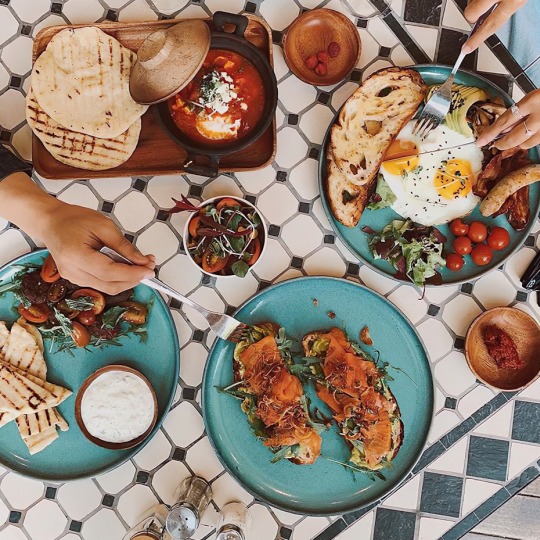
This may sound counterintuitive but buying bulk can save waste in two ways. Firstly you can buy exactly as much as you need, not the serving size the manufacturer dictates. Secondly you can take your own containers and receptacles to bulk food stores and refill, saving a lot of packaging. Heres a few local bulk food stores –
Ingraina Bulk Foods – Moonee Ponds Central
Tops Rays Nuts Hall Street Moonee Ponds
Urban Wellness Project Union Road Ascot Vale
Online – The Full Pantry
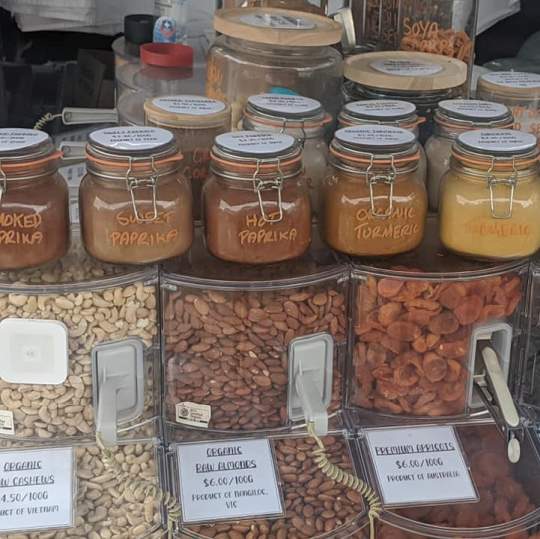
To learn more about food choices and the impact these have, heres some great networks and resources to hook into –
Fork Ranger – Info graphic insta that shows the impact of food choices
The Veggie Scientist – insta page showing you where fruit and veg comes from and how
Sustain – Australian Food Network
Field Notes – a place for great Australian sustainable agriculture stories
Catalyst Social Centre – radical community organising space with food rescue and solidarity initiatives that are rethinking the politics of waste (and much more!)
